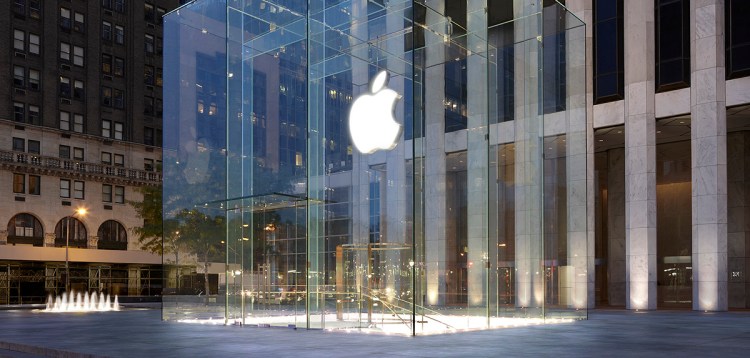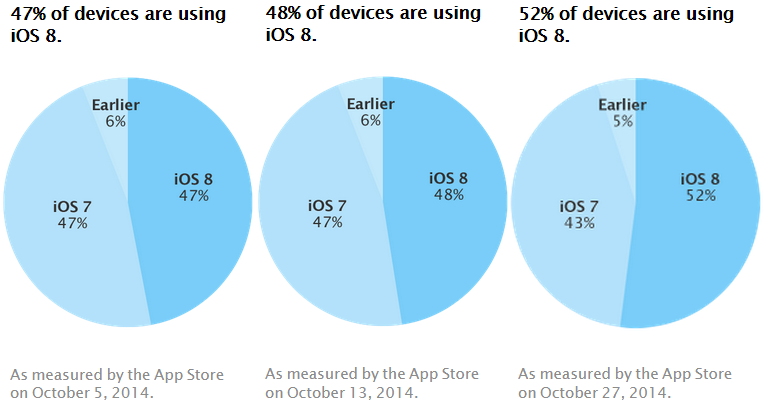Apple today updated its iOS adoption numbers, showing that iOS 8 has finally passed the 50 percent mark. We say “finally” because the latest version of the company’s mobile operating system has had a notably slower adoption rate compared to its predecessors.
Between Oct. 13 and Oct. 27, iOS 8 share (which includes the recently-released iOS 8.1) increased from 48 percent to 52 percent. In the same period, iOS 7 fell 4 percentage points to 43 percent, and the remaining iOS versions remained flat (we think the 1 percentage point difference is a rounding error). These figures come from the usage of the company’s App Store, presented on the support page for developers:
The slower adoption rate of iOS 8 compared to the same time period for iOS 7 and iOS 6 was first noticed by third-party tracking sites (most of which rely on ad impressions). The trend was then confirmed by Apple when iOS 8 gained only 1 percentage point less than a month after its release.
There are many possible reasons for Apple users not upgrading to the latest iOS release as quickly as in the past. They may be wary of bugs or simply not impressed with the feature set.
Another potentially massive factor is likely the size of the update. If you want to grab the iOS 8 upgrade over-the-air (OTA), you’ll need about 5GB of free space on your device. If this really is a primary factor, Apple should figure out a way to encourage users to simply plug their device into a computer and use iTunes, so they can both move over content to make room and perform the update over USB.
Yet even if Apple does nothing, a 50 percent penetration rate for the latest release of an operating system is decent. Developers are unlikely to shy away from using iOS 8-specific features, which in turn will likely only encourage more users to upgrade as they seek to get new apps and existing apps with new features.
In fact, Apple will require iOS apps and updates to use the iOS 8 SDK and include 64-bit support starting in February 2015. That’s less than four months away.
VentureBeat's mission is to be a digital town square for technical decision-makers to gain knowledge about transformative enterprise technology and transact. Learn More


